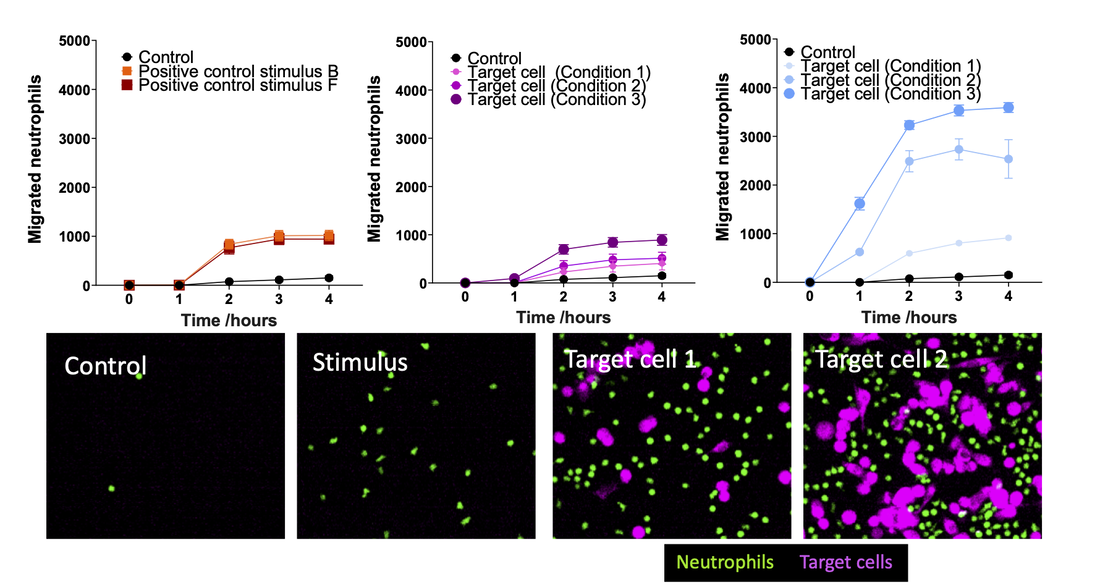Home > Immunology Assays > Neutrophils/Granulocytes
Assays for measuring neutrophil activation, migration, ROS generation and survivalGranulocytes (polymorphonuclear leukocytes) are a major component of the innate immune system, accounting for the majority of white blood cells. They are phagocytes that protect against bacteria, viruses and other various parasites. This action comes partly from their possession of cytoplasmic granules to aid digestion of the foreign cells. An increase in granulocytes occurs in response to infections, blood cell malignancies (such as leukaemia), and some autoimmune diseases.
Within the population of granulocytes, neutrophils are by far the most prevalent and contribute to the pathogenesis of diseases like inflammatory arthritis, chronic obstructive pulmonary disease (COPD) and Behçet’s disease. Neutropenia leads to susceptibility to infectious with severe cases often life-threatening. Other granulocytes, eosinophils and basophils are considerably less prevalent compared to neutrophils, but are important to fight infection by, for example, multi-cellular parasites (e.g. worms). Both cell types are also involved in allergic reactions. Celentyx use a range of assays to investigate granulocyte function performed on cells freshly isolated from human blood including: activation marker expression, ROS generation, survival, migration. Assays may be suitable for evaluating modulators of chemokine receptors, DAMP receptors, G-CSFR, GM-CSFR, LFA1, MAC1, PI3k, PKC, Syk, TLRs and others. |
Further Immunology Assays
B Cells Haemolysis Testing Human Microglia Macrophages/Monocytes Phagocytosis Assays Regulatory T cells Spheroid Killing Assays Suppression Assays T Cell Activation Assays T Cell Exhaustion Assays Tumour infiltrating lymphocyte (TIL) and dissociated tumour cell assays Tumour Cell Killing Assays |
|
EXAMPLE DATA:
Right: Ability of a test immunomodulator to promote human neutrophil effector function relative to the maximal effect of a high efficacy positive control. Neutrophil effector function was assessed by flow cytometry for reactive oxygen species (ROS) activity. The test immunomodulator produced a small but consistent increase in neutrophil effector function. |
Neutrophil Migration


